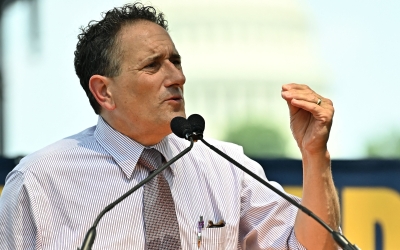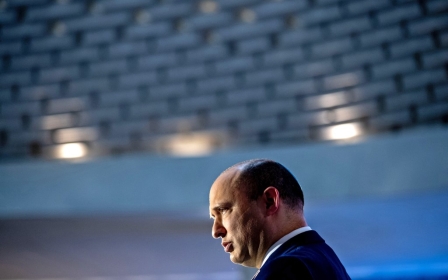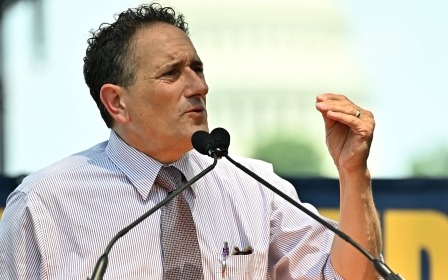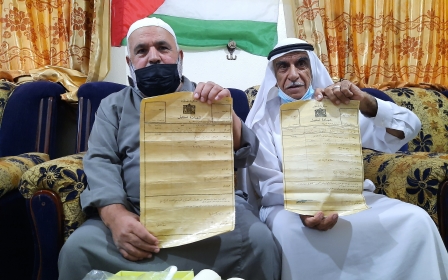Abbas gives Israel one-year deadline to withdraw from Palestinian territories
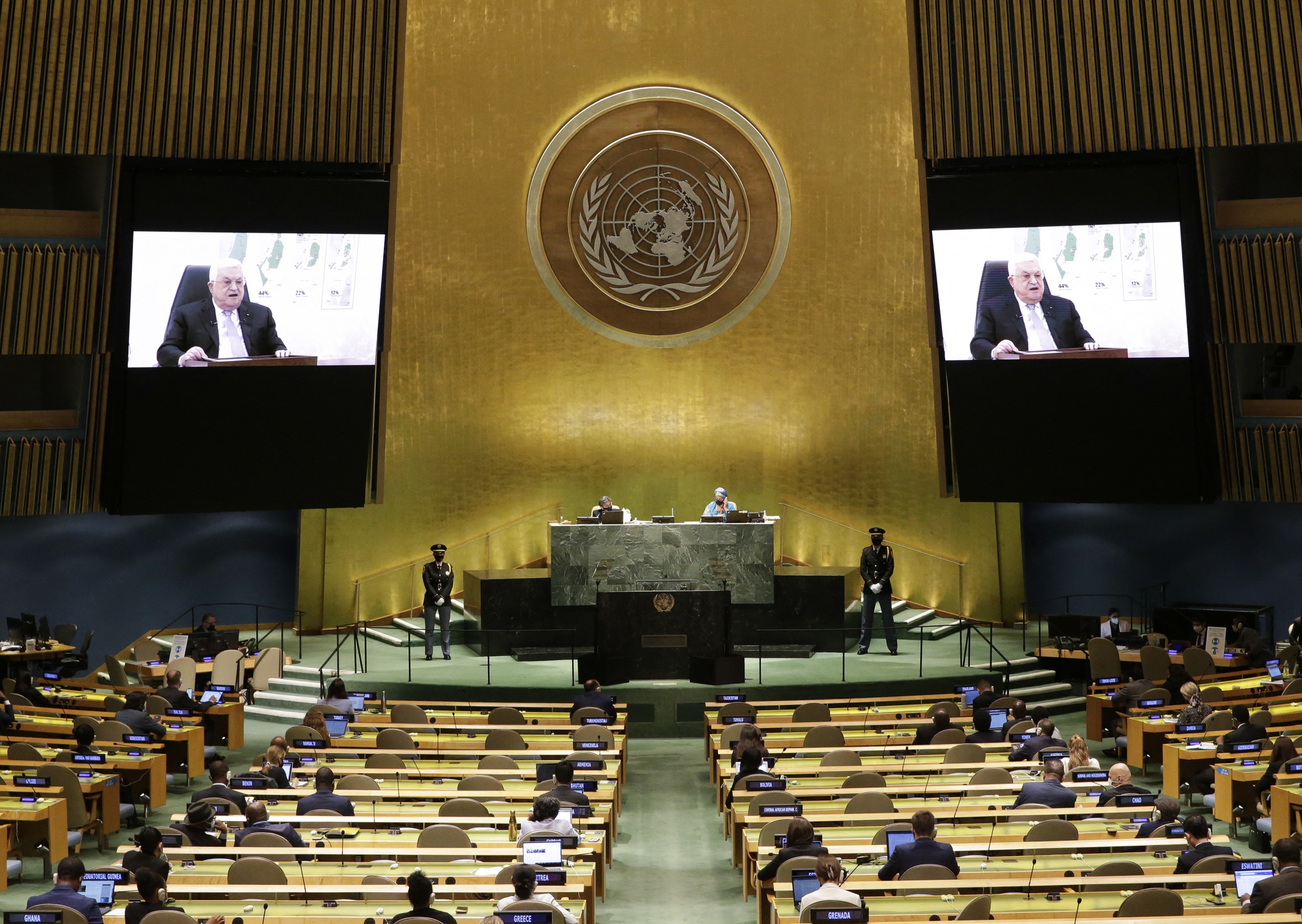
Palestinian President Mahmoud Abbas has suggested he could reverse recognition of the 1967 borders with Israel and push to press charges in the International Criminal Court (ICC) if it did not withdraw from East Jerusalem, the occupied West Bank and Gaza within the next year.
In an address to the UN General Assembly on Friday, Abbas said "current and former" Israeli governments had persisted in evading the two-state solution based on international law while "insisting on pursuing occupation and military control over the Palestinian people".
"If the Israeli occupation authorities continue to entrench the reality of one apartheid state as is happening today, our Palestinian people and the entire world will not tolerate such a situation," Abbas said.
"Circumstances on the ground will inevitably impose equal and full political rights for all on the land of historical Palestine, within one state. In all cases, Israel has to choose."
In his video address, Abbas, 85, said he was "ready to work throughout this year on the delineation of borders and solving all final status issues under the auspices of the international Quartet and in accordance with United Nations resolutions".
New MEE newsletter: Jerusalem Dispatch
Sign up to get the latest insights and analysis on Israel-Palestine, alongside Turkey Unpacked and other MEE newsletters
"If this is not achieved, why maintain recognition of Israel based on the 1967 borders?" he said.
Israel illegally annexed East Jerusalem in 1967 and considers all of the city as its capital. Palestinians want East Jerusalem to be the capital of a state they seek to establish in the Israeli-occupied West Bank and the Gaza Strip.
While some Palestinians and Israelis support the idea of a single binational state, most have very different ideas of what that entity would look like and how it would be governed.
Most analysts contend a single state would not be viable, for religious, political and demographic reasons.
Israel's far-right Prime Minister Naftali Bennett is set to speak at the United Nations in New York on Monday, 27 September.
Bennett, who presides over a fragile coalition government, has ruled out the creation of a Palestinian state and said his administration would continue expanding existing illegal Israeli settlements in the occupied territories.
Talks between the Israelis and the Palestinians collapsed in 2014 and worsened following former US President Donald Trump's so-called "deal of the century" plan for the Middle East that saw a number of Arab countries reach normalisation agreements with Israel.
Earlier this week, US President Joe Biden said the two-state solution was the only way to solve the issue. However, during his speech at the United Nations General Assembly, he noted that "we are a long way from that goal at this moment".
Israel's ambassador to the UN Gilad Erdan echoed that message earlier this month, saying the "[two-state] option is not on the table, so we're focused on what unites us rather than what divides us".
Middle East Eye delivers independent and unrivalled coverage and analysis of the Middle East, North Africa and beyond. To learn more about republishing this content and the associated fees, please fill out this form. More about MEE can be found here.


